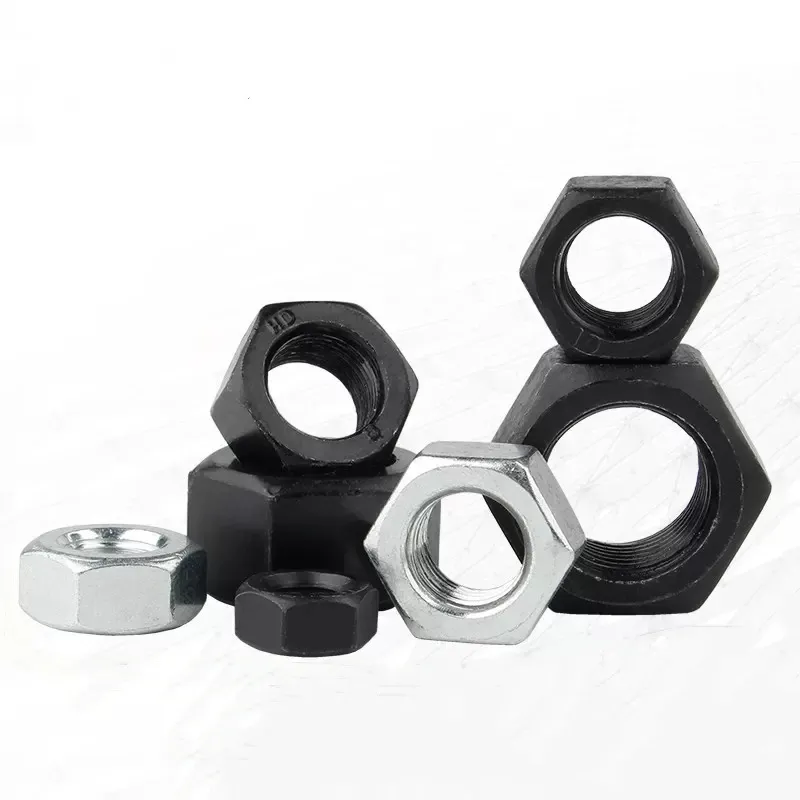

stud bolt m16
Nov . 24, 2024 02:37 Back to list
stud bolt m16
Understanding Stud Bolt M16 Specifications, Applications, and Benefits
Stud bolts are essential fasteners commonly used in various industrial applications where high strength and reliability are crucial. Among the numerous types of stud bolts available, the M16 stud bolt is particularly notable due to its size and the versatility it offers in various engineering fields. This article explores the specifications, applications, and advantages of M16 stud bolts.
Specifications of M16 Stud Bolt
The M16 stud bolt is defined by its nominal diameter of 16 millimeters, adhering to the metric measurement system. Typically manufactured from high-strength materials such as steel, stainless steel, or alloy steel, M16 stud bolts can withstand significant tensile and shear stresses, making them suitable for demanding applications.
Stud bolts generally exhibit a double-ended configuration—a threaded section at both ends—allowing them to be used in conjunction with nuts or other fastening devices. The standard thread pitch for M16 bolts is 2.0 mm, though variations may exist based on specific requirements. A key characteristic of M16 stud bolts is their ability to achieve precise and consistent torque, ensuring a secure fit that reduces the risk of loosening over time.
Applications of M16 Stud Bolts
M16 stud bolts are widely used across numerous industries, including construction, automotive, and oil and gas. Here are some common applications
1. Structural Engineering In construction, M16 stud bolts are utilized to secure structural steel elements, ensuring stability and safety in buildings and bridges. Their high tensile strength makes them ideal for supporting loads in various structural frameworks.
2. Machinery and Equipment Assembly In the manufacturing sector, M16 stud bolts play a vital role in the assembly of heavy machinery and equipment. Their robust design provides the necessary reliability for components that experience dynamic forces during operation.
3. Piping Systems In the oil and gas industry, these bolts are frequently employed in bolted flange connections within piping systems. The ability to withstand high pressure and temperatures makes them suitable for such applications.
stud bolt m16

4. Automotive Industry M16 stud bolts are also found in automotive applications, where they are used to fasten various components, including engine parts and chassis connections. Their reliability is crucial for vehicle safety and performance.
Benefits of M16 Stud Bolts
The use of M16 stud bolts in various applications offers several advantages
1. High Strength M16 studs are designed to handle high loads, ensuring that they can maintain integrity even under extreme conditions.
2. Corrosion Resistance When manufactured from stainless steel, M16 stud bolts exhibit excellent corrosion resistance, making them suitable for outdoor applications or environments with moisture.
3. Customization Manufacturers can produce M16 stud bolts with specific coatings or finishes to meet the requirements of different projects. This flexibility ensures that they can be optimally used in a range of environments.
4. Ease of Installation M16 stud bolts are relatively easy to install and remove compared to other fasteners. This can lead to reduced labor costs and time in construction and assembly.
5. Cost-Effectiveness Given their durability and reliability, M16 stud bolts offer a cost-effective solution for long-term applications, minimizing the need for frequent replacements or maintenance.
Conclusion
In summary, M16 stud bolts are critical components in various industrial applications, providing high strength, reliability, and versatility. Their ability to withstand significant stresses while being easy to install makes them a popular choice among engineers and manufacturers alike. As industries continue to evolve, the demand for robust fastening solutions like the M16 stud bolt is expected to grow, reinforcing their place as essential tools in modern engineering and construction practices. Understanding their specifications, applications, and benefits can help stakeholders make informed decisions in their respective fields.
Latest news
-
High-Strength Hot-Dip Galvanized Bolts-Hebei Longze|Corrosion Resistance&High Strength
NewsJul.30,2025
-
Hot Dip Galvanized Bolts-Hebei Longze|Corrosion Resistance&High Strength
NewsJul.30,2025
-
Hot Dip Galvanized Bolts - Hebei Longze | Corrosion Resistance, High Strength
NewsJul.30,2025
-
High-Strength Hot Dip Galvanized Bolts-Hebei Longze|Corrosion Resistance, Grade 8.8
NewsJul.30,2025
-
Hot Dip Galvanized Bolts-Hebei Longze|Corrosion Resistance,High Strength
NewsJul.29,2025
-
High-Strength Hot Dip Galvanized Bolts - Hebei Longze Metal Products Manufacturing Co., Ltd.|corrosion resistance&high strength
NewsJul.29,2025

